Growing list of elite traditional rulers in Dagbon; will these educated chiefs make the difference?
The Northern region of Ghana is arguably the epicenter of bitter chieftaincy and political conflicts in the country. Ethnic and chieftaincy conflicts have occurred many times in Buipe, Yendi, Bimbilla, Gushegu, Nakpanduri and Bunkprugu-Yunyoo all in the northern region of Ghana. The causes of these communal disturbances range from chieftaincy disputes, land ownership, inter and intra ethnic disagreements and sporadic political clashes largely between the supporters of the two major political parties in the country; the NDC and NPP. As we are no doubt aware, these unfortunate conflicts have serious monumental repercussions on the social, political, security and economic landscape of the region in particular and the country as a whole. To all intents and purposes, these protracted chieftaincy and land ownership disputes in Dagbon, Gonjaland, Na-Nung and Mamprugu Kingdoms in the northern region can be attributed largely to leadership failure. The chief on assumption of office pledge among other things to enhance the unity of his people, promote peace and order and also be an agent of change, modernity and development in his community. But because some of these traditional leaders lack good leadership skills, they are unable to prevent or manage conflicts in their areas of jurisdiction. These conflicts are a major threat to peace, security, stability and development of the north in particular and Ghana as a whole. It behoves on the chiefs to use dialogue and other alternative dispute resolution mechanisms to resolve chieftaincy and land litigation matters before they escalate into full blown conflicts. The Northern Regional House of chiefs should be proactive and transparent in handling chieftaincy disagreements before, during and after they occur. Where the Regional House of chiefs or the chief lack the skills and competence to equitably resolve simmering disagreements, it is advisable to solicit the help of civil society organizations with expertise in conflict management and peace building to mediate in such disagreements. The Northern Regional House of chiefs can engage the services of the Otumfuor Centre for Traditional Leadership at the University of Professional Studies, Accra (UPSA) to undertake capacity building for their Paramount and Divisional chiefs to strengthen their governance and leadership skills. We require traditional leaders who are visionary and knowledgeable to engineer transformational change in their traditional areas.
While we may fault traditional leaders for some of the mishaps in their areas of jurisdiction, politicians particularly those who aspire to become parliamentarians more often than not exploit the ethnic and chieftaincy divide in their constituencies to achieve their selfish interests. Politics has become the life blood of the youth in the north ostensibly because many of them have poor education and lack requisite employable skills to obtain gainful employment or establish businesses. The politicians therefore capitalize on the lack of jobs, ignorance and the general poverty of the people and use them to achieve their parochial political agenda. These politicians use the youth as “drawers of water and hewers of wood” in return for some paltry sums to meet their immediate needs. There is no evidence of any socio-economic development scheme put in place by a politician in any part of the region to “teach the youth how to fish”. The northern caucus in parliament and SADA should collaborate to arrange Leadership and Entrepreneurship training for the youth to acquire entrepreneurial skills to establish and manage their own enterprises. It is sad to state that many of these political office seekers are not elected or appointed on the basis of their pedigree, merit or competence but on which side of the chieftaincy faction they belong or support. It is generally observed that many of such elected or appointed on the basis of their pedigree, merit or competence but on which side of the chieftaincy faction they belong or support. It is generally observed that many of such elected or appointed politicians contribute very little to the development and progress of their people because they lack what it takes to attract or lobby for resources to bring development to their constituents. Further, such parliamentarians make very little contribution to debates in parliament and thereby unable to articulate and espouse the aspirations of their constituents. These self seeking politicians further polarize the community by supporting and funding political youth groups to intimidate, vandalize and commit all sorts of atrocities against their opponents often leaving in their wake broken limbs, deaths and the destruction of properties including houses, vehicles and businesses.
The ethnic and chieftaincy conflicts affect the social cohesion and fabric of the people culminating in the sowing and nurturing of seeds of hatred, mistrust and disunity. In many instances, marriages collapse with the attendant consequences of broken homes, child delinquency and waywardness. Indeed, the minuses of these ethnic and chieftaincy conflicts far outweigh the perceived or real benefits to the people. The social, political and economic consequences of these protracted conflicts are unimaginable and monumental prompting many people to question the relevance of the chieftaincy institution to the northerner.
These atrocities no doubt accentuate the poverty of the people; making living conditions unbearable for the majority of the people and pushing many of the youth to the south to seek for the so called greener pastures. It is the hope and prayer of many and sundry that sooner than later when lasting peace and unity is secured in the north, these politicians will no longer be able to use chieftaincy to advance their selfish and parochial interests. Then will the electorate be able to elect people who have the competence, ability and intellectual capacity to effectively represent them in parliament. But the good question is when will the north secure the much desired permanent and lasting peace? This is a million dollar question which defies an easy answer even by the soothsayers. We are much aware that respective governments since the days of President Kwame Nkrumah in the 1950’s coupled with some local and international bodies, civil society and religious groups have at different times mediated to find amicable and permanent solutions to these ethnic and chieftaincy conflicts in the north but all to no avail. One notable reason why these peace overtures have so far failed to yield positive results is that the key stakeholders to peace in the conflict areas ; namely government, political parties, traditional rulers, local politicians and opinion leaders are the very institutions or people who benefit either directly or indirectly from the fall-outs of these conflicts. These key actors loudly claim their total and unflinching commitment to peace and unity in the north yet are unwilling to make compromises and sacrifices for the desired peace and unity to be achieved. Despite the apparent lack of genuine commitment by the key stakeholders to bring permanent closure to these conflicts, many peace lovers believe that these conflicts can become history if the government in power has the political will to push for permanent peace and reconciliation. The President, His Excellency John Dramani Mahama who hails from the region has indicated in the strongest term yet of his determination to find lasting solution to the Dagbon crises in particular. However, the President’s desire can only be realized if the traditional rulers are prepared to stand down on their claims and make compromises for a win-win solution. It is heart-warming to note that of recent a new breed of highly educated persons some with international working experiences have taken up titles as divisional chiefs in Dagbon and it is hoped that these elite chiefs will be amenable to progress and change and will support the President’s efforts to secure lasting peace and reconciliation. It is also envisaged that these new chiefs will play the role of visionary and transformational leaders promoting not only peace and unity but championing the strategic development of their communities. These traditional leaders have the responsibility to mobilize the diversity of their people especially the educated and the youth to support the process of change, modernity and development in the region. This brings to mind the critical role youth associations play in promoting the development, unity and peace of their respective areas. We hope the Dagbon and Nanumba Youth associations which went out of ‘coverage area’ during the chieftaincy debacles in their areas will resurrect soonest to help the chiefs find lasting solution to the ethnic and chieftaincy conflicts. The old executives of the Dagbon and Nanumba Youth Associations should as matter of urgency hold general meetings to elect new officers to get the associations working again. The Overlords of Dagbon and Na-Nung should play oversight roles in ensuring the resurrection and functioning of these Youth associations. The Gonjaland and Konkomba Youth Associations should be commended for staying afloat and working hard to promote peace and development in their respective areas. The Dagbon Students Association (DASA) and other affiliate youth groups who are going round Dagbon advocating for peace and reconciliation also deserve commendation and encouragement.
The scriptures say that “Blessed are the peace makers for they shall inherit the Kingdom of Heaven “. It is the hope and prayer of well-wishers that the traditional rulers in the North will emulate the enviable achievements of their colleague chiefs from the south who have at various levels secured national and international investments for their traditional areas. It cannot be gainsaid that the north is highly blessed with vast lands rich in agricultural, mineral, water and other natural resources which can be productively exploited and harnessed to reduce drastically the endemic poverty of the people. It is anticipated that these educated chiefs will work assiduously to source for national and international investments in agriculture, forestry, manufacturing, mining, education, health and other businesses in order not only to raise the income levels of their people but also to provide employment opportunities for the teeming unemployed youth. We highly commend our traditional leaders who use part of the proceeds from the sale of traditional lands to develop their communities and to encourage those who are yet to do same to emulate their progressive colleagues. The overlord of Dagbon, the Ya-Na should encourage and honour people who have invested in the socio-economic development of Dagbon. We doff our hats for personalities like Dr Abdulai Fuseini Choggu who has for years being providing free medical treatment to the poor and needy in the region, Professor Chief Abubakari Alhassan (Gushie-Na), founder of both the School for life and the Technical University College of Ghana and Dr Mobson Danladi Abdulai, formerly of Action Aid and also the founder of the Mandela Community center in Tamale; just to name a few of the heroes and heroines who should be honoured by the Dagbon people. We humbly call on the traditional rulers of Tamale to get whoever purchased the erstwhile Tamale Catering Rest house to as quickly as possible find investors to turn the place round so as to provide employment opportunities for hundreds of youth in the metropolis. It is appropriate to appeal to all northern professionals, politicians, public servants, business executives and so forth domiciled in the south and who only surface in the north during funerals to be patriotic and support the development efforts of their compatriots at home. It’s time the northern people took their destiny into their own hands instead of relying on the central government to provide the needed socio-economic transformation of the North. We conclude by heartily welcoming the elite chiefs to their traditional roles, hoping and trusting that they will not preside over antiquity but will blaze a trail of change and modernity and leaving a legacy of evidenced-based development in their traditional areas. Dagbon must be UNITED and RISE again to its apogee of power and glory.
By : Haj Adams Goldwater
Takoradi.


.png)



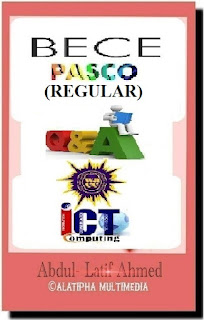




















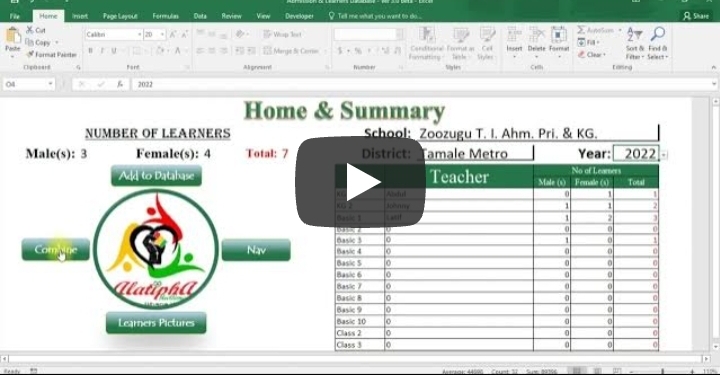


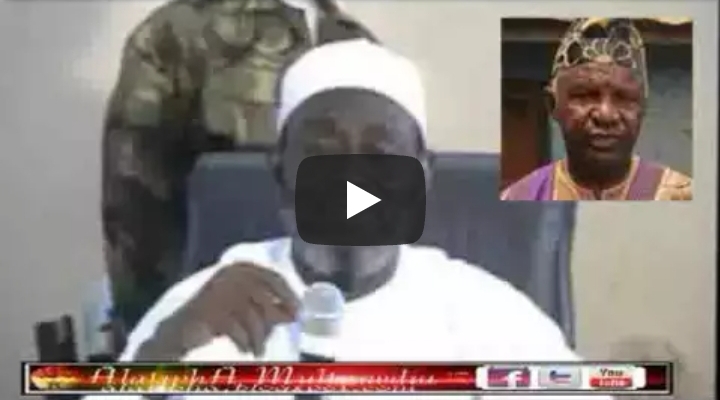
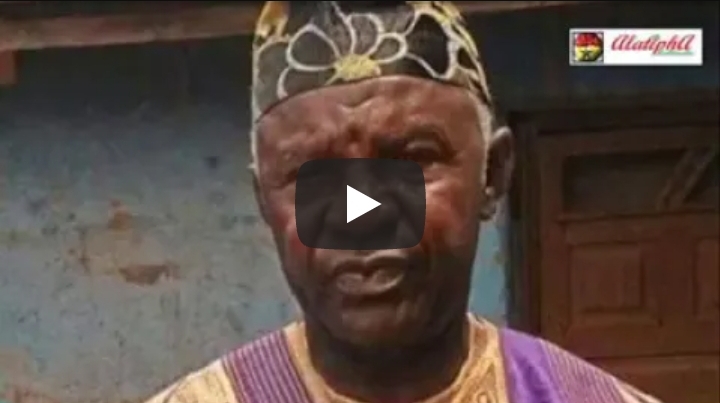
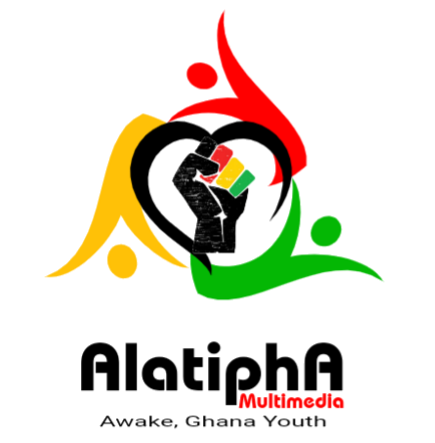
Comments
Post a Comment